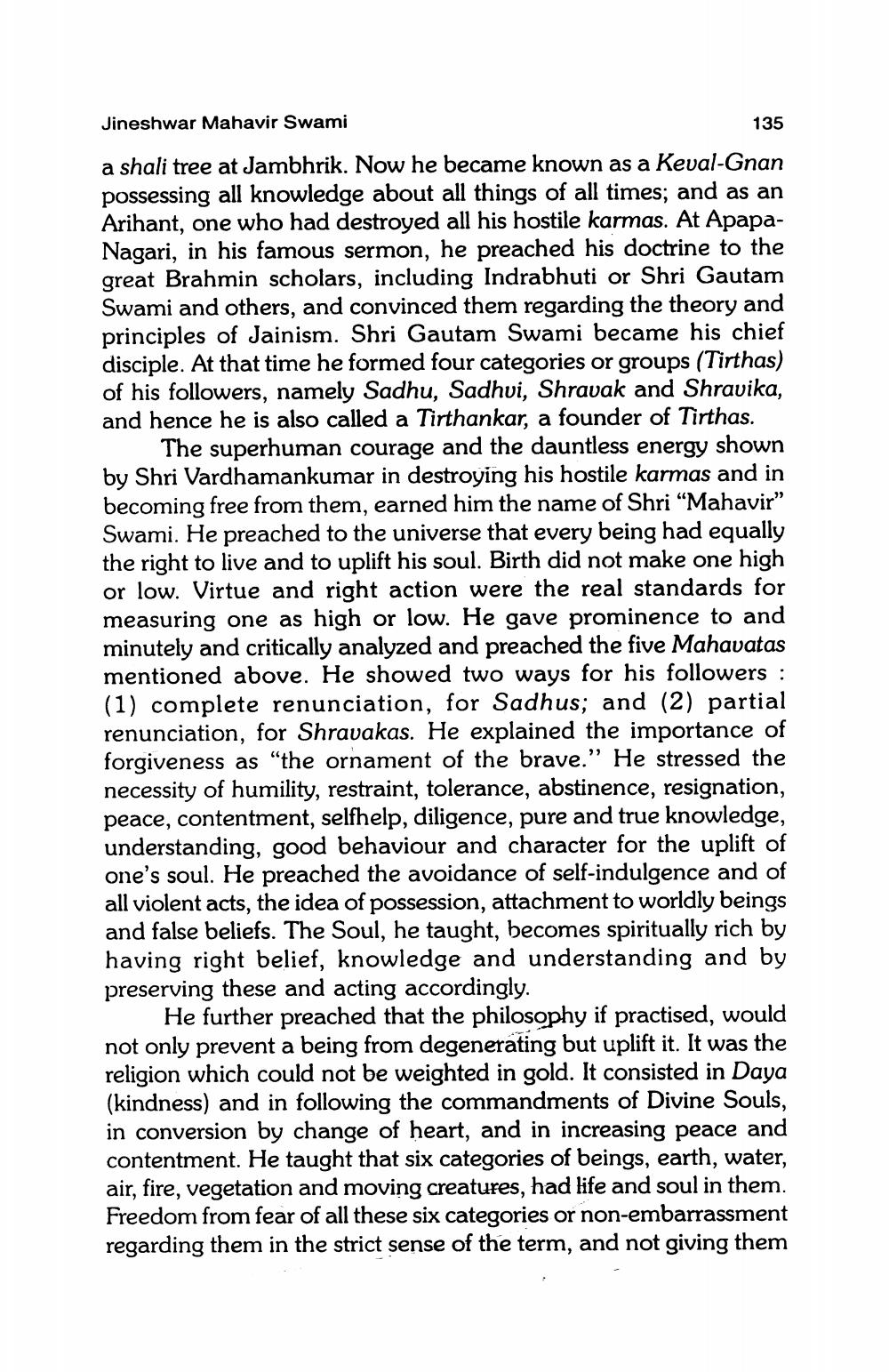________________
Jineshwar Mahavir Swami
a shali tree at Jambhrik. Now he became known as a Keval-Gnan possessing all knowledge about all things of all times; and as an Arihant, one who had destroyed all his hostile karmas. At ApapaNagari, in his famous sermon, he preached his doctrine to the great Brahmin scholars, including Indrabhuti or Shri Gautam Swami and others, and convinced them regarding the theory and principles of Jainism. Shri Gautam Swami became his chief disciple. At that time he formed four categories or groups (Tirthas) of his followers, namely Sadhu, Sadhvi, Shravak and Shravika, and hence he is also called a Tirthankar, a founder of Tirthas.
135
The superhuman courage and the dauntless energy shown by Shri Vardhamankumar in destroying his hostile karmas and in becoming free from them, earned him the name of Shri "Mahavir" Swami. He preached to the universe that every being had equally the right to live and to uplift his soul. Birth did not make one high or low. Virtue and right action were the real standards for measuring one as high or low. He gave prominence to and minutely and critically analyzed and preached the five Mahavatas mentioned above. He showed two ways for his followers : (1) complete renunciation, for Sadhus; and (2) partial renunciation, for Shravakas. He explained the importance of forgiveness as "the ornament of the brave." He stressed the necessity of humility, restraint, tolerance, abstinence, resignation, peace, contentment, selfhelp, diligence, pure and true knowledge, understanding, good behaviour and character for the uplift of one's soul. He preached the avoidance of self-indulgence and of all violent acts, the idea of possession, attachment to worldly beings and false beliefs. The Soul, he taught, becomes spiritually rich by having right belief, knowledge and understanding and by preserving these and acting accordingly.
He further preached that the philosophy if practised, would not only prevent a being from degenerating but uplift it. It was the religion which could not be weighted in gold. It consisted in Daya (kindness) and in following the commandments of Divine Souls, in conversion by change of heart, and in increasing peace and contentment. He taught that six categories of beings, earth, water, air, fire, vegetation and moving creatures, had life and soul in them. Freedom from fear of all these six categories or non-embarrassment regarding them in the strict sense of the term, and not giving them




